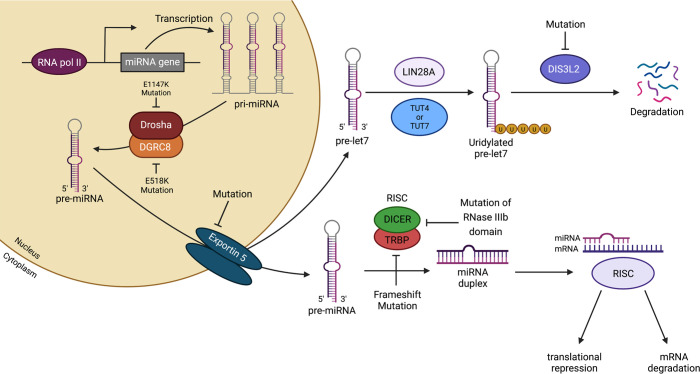Figure 3. Mutations in miRNA-processing genes result in aberrant miRNA expression and Wilms tumorigenesis.
Recurrent mutations in a metal-binding (Mg2+) residue of the RNase IIIb domain of DROSHA (E1147K) or in the double-stranded RNA-binding domain of DGRC8 (E518K) disrupt the cleavage of pri-miRNAs into pre-miRNAs. Mutations in XPO5 (encodes exportin 5) prevent pre-miRNA export, which culminates in pre-miRNA accumulation in the nucleus. Frameshift mutations in TARBP2 (encodes TRBP) and mutations affecting the RNase IIIb domain of DICER1 can disrupt the processing of pre-miRNAs into mature miRNAs. In stem and progenitor cells, members of the let-7 miRNA family function as tumor suppressors, and their expression is tightly regulated by the RNA-binding protein Lin28. Lin28A binds to the terminal loop of let-7 precursors and recruits the activity of the terminal uridyl transferases TUT4/7 to produce uridylated pre-let-7, which is subsequently degraded by DIS3L2. Overexpression of LIN28 and mutations in DISL3L2 have been associated with aberrant mature let-7 expression and Wilms tumorigenesis. Created with BioRender.com.

